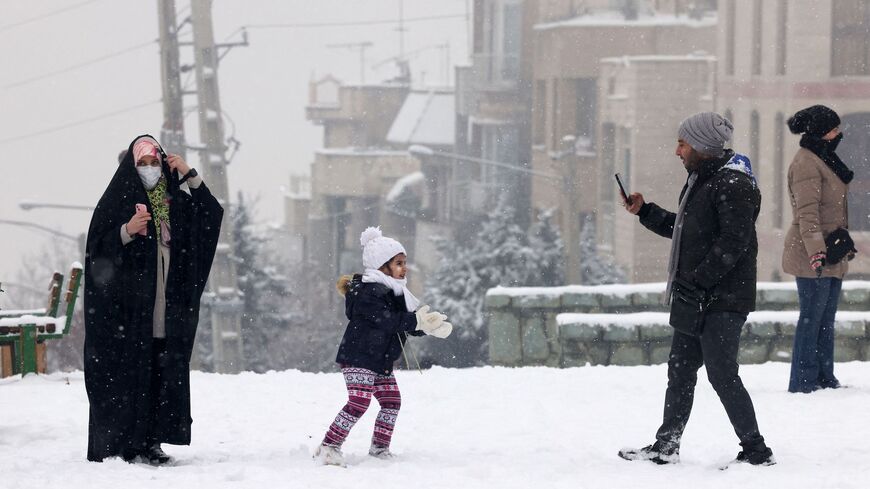Iran's Oil Minister Javad Owji publicly apologized to citizens on Tuesday following week-long disruptions in household gas supplies that left thousands of homes without heating and triggered widespread closures of public service institutions.
In a televised interview, the minister promised that "the situation will not happen again next winter" and acknowledged that some 17,000 households had been left without gas supplies over the past few days.
"Again, I express my apologies to our dear and dignified nation if they had to go through difficulty. But I do promise that with the measures adopted by the government, we will not have gas blackouts next year," Owji said.
The most severe shortages were reported in the country's northeast, particularly the cities of Torbat-e Jaam and Taybad, where angry locals gathered outside the governor's office late on Monday demanding his resignation and chanting against Supreme Leader Ayatollah Ali Khamenei.
در پی قطع گاز همزمان با موج سرما در تربت جام و تجمع شماری از معترضان در مقابل فرمانداری و هلال احمر این شهر، تصاویری از درگیری با نیروهای امنیتی و شعارهای ضدحکومتی در این شهر در شبکههای اجتماعی منتشر شده است. https://t.co/2Dp5kbbJe4 pic.twitter.com/3P05AqQ6rN
— BBC NEWS فارسی (@bbcpersian) January 16, 2023
Yet despite the minister's promises, some bleak pictures have already been painted. "The country will be grappling with a gas crisis for at least 20 years to come," declared Ahmad Zeraatkar, head of the office for energy at the state-run Budget and Planning Organization, in comments carried last week by the economic news outlet, Tahlil-e Bazaar.
Iran possesses over 17% of the world's entire gas reserves, the largest share next only to Russia. Still, the latest wave of snow and rainfall appeared to have caught officials off guard and scrambling for solutions in the face of jumping demands.
To economize on consumption, they ordered — among other measures — the shutdown for several days of schools, universities and a host of public offices in the Tehran and other large cities. The policy, nevertheless, has drawn widespread criticism from citizens who are pointing at the government's "incompetence" in dealing with a slightly more-than-normal winter season. Observers have also pointed out other factors to blame, including a rusty, eroding infrastructure, and international sanctions, which in part seem to have rendered many gas field projects either incomplete or semi-operational.
'The harsh winter is right here'
Following the Russian invasion of Ukraine and the ensuing shock to global gas deliveries, Iranian authorities as well as government-linked pundits pontificated about "Europe's looming harsh winter," arguing that Western states will come crawling back to the Islamic Republic to offer sanctions relief in exchange for much-needed gas supplies.
In recent days, however, opponents and netizens highlighted contradictions in those remarks with the ongoing situation in their country, writing under trending hashtags, including one in Persian that reads "The harsh winter is right here."
Many also dug out a pre-winter interview by the oil minister, when he confidently offered supplies to Europe and prayed that "we will stay alive to see their harsh winter." Those comments were juxtaposed, fast forward, to his plea only last week on state television as he called on Iranians to put on warm clothes and turn down heating systems to help tackle the crisis.








